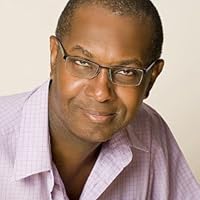Dictatorships Quotes
Quotes tagged as "dictatorships"
Showing 1-30 of 35
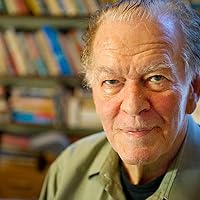
“Dictators are not in the business of allowing elections that could remove them from their thrones.”
― From Dictatorship to Democracy
― From Dictatorship to Democracy

“Dictatorships usually exist primarily because of the internal power distribution in the home country. The population and society are too weak to cause the dictatorship serious problems, wealth and power are concentrated in too few hands. Although dictatorships may benefit from or be somewhat weakened by international actions, their continuation is dependent primarily on internal factors.”
― From Dictatorship to Democracy
― From Dictatorship to Democracy
“In dictatorships the media is controlled by the State. In democracies the media is controlled by wealthy individuals with political affiliations. Objective media and journalists simply do not exist in the mainstream.”
―
―

“What naive garbage. People don't want freedom anymore--even those to whom freedom is a kind of religion are afraid of it, like trembling acolytes who make sacrifices to some pagan god. People want their governments to keep secrets from them. They want the hand of law to be brutal. They are so terrified by their own power that they will vote to have it taken out of their hands. Look at America. Look at the sharia states. Freedom is a dead philosophy, Alif. The world is returning to its natural state, to the rule of the weak by the strong. Young as you are, it's you who are out of touch, not me.”
― Alif the Unseen
― Alif the Unseen

“A country where people are afraid of even their own shadows is surely a country of dictatorship! In such vile countries there are two groups of people: The zombies, the living-dead who serve the dictator and the rest, the clever and honourable people who fight for their freedom!”
―
―
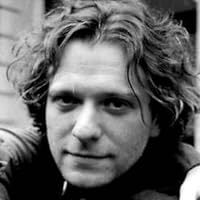
“That unique Moscow mix of tackiness and menace. One time I see a poster advertising a new property development that captures the tone nicely. Got up in the style of Nazi propaganda, it shows two Germanic-looking youths against a glorious alpine mountain over the slogan "Life is Getting Better". It would be wrong to say the ad is humorous, but it's not quite serious either. It's sort of both. It's saying this is the society we live in (a dictatorship), but we're just playing at it (we can make jokes about it), but playing in a serious way (we're making money playing it and won't let anyone subvert its rules).”
― Nothing Is True and Everything Is Possible: The Surreal Heart of the New Russia
― Nothing Is True and Everything Is Possible: The Surreal Heart of the New Russia

“If a nation is leaving democracy and choosing fascism, it means that it is taking itself from a peaceful garden to a bloody slaughter house!”
―
―

“There's a strong message of divine righteousness in dictatorships. Every megalomaniac has to believe his actions are sanctioned by God.”
― The Descartes Highlands
― The Descartes Highlands
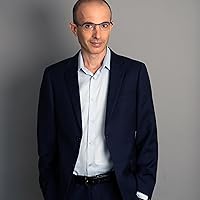
“In the late twentieth century democracies usually outperformed dictatorships because democracies were better at data-processing. Democracy diffuses the power to process information and make decisions among many people and institutions, whereas dictatorship concentrates information and power in one place. Given twentieth-century technology, it was inefficient to concentrate too much information and power in one place. Nobody had the ability to process all the information fast enough and make the right decisions. This is part of the reason why the Soviet Union made far worse decisions than the United States, and why the Soviet economy lagged far behind the American economy.
“However, soon AI might swing the pendulum in the opposite direction. AI makes it possible to process enormous amounts of information centrally. Indeed, AI might make centralised systems far more efficient than diffused systems, because machine learning works better the more information it can analyse. If you concentrate all the information relating to a billion people in one database, disregarding all privacy concerns, you can train much better algorithms than if you respect individual privacy and have in your database only partial information on a million people. For example, if an authoritarian government orders all its citizens to have their DNA scanned and to share all their medical data with some central authority, it would gain an immense advantage in genetics and medical research over societies in which medical data is strictly private. The main handicap of authoritarian regimes in the twentieth century – the attempt to concentrate all information in one place – might become their decisive advantage in the twenty-first century.”
― 21 Lessons for the 21st Century
“However, soon AI might swing the pendulum in the opposite direction. AI makes it possible to process enormous amounts of information centrally. Indeed, AI might make centralised systems far more efficient than diffused systems, because machine learning works better the more information it can analyse. If you concentrate all the information relating to a billion people in one database, disregarding all privacy concerns, you can train much better algorithms than if you respect individual privacy and have in your database only partial information on a million people. For example, if an authoritarian government orders all its citizens to have their DNA scanned and to share all their medical data with some central authority, it would gain an immense advantage in genetics and medical research over societies in which medical data is strictly private. The main handicap of authoritarian regimes in the twentieth century – the attempt to concentrate all information in one place – might become their decisive advantage in the twenty-first century.”
― 21 Lessons for the 21st Century

“In the late twentieth century democracies usually outperformed dictatorships because democracies were better at data-processing. Democracy diffuses the power to process information and make decisions among many people and institutions, whereas dictatorship concentrates information and power in one place. Given twentieth-century technology, it was inefficient to concentrate too much information and power in one place. Nobody had the ability to process all the information fast enough and make the right decisions. This is part of the reason why the Soviet Union made far worse decisions than the United States, and why the Soviet economy lagged far behind the American economy.
However, soon AI might swing the pendulum in the opposite direction. AI makes it possible to process enormous amounts of information centrally. Indeed, AI might make centralised systems far more efficient than diffused systems, because machine learning works better the more information it can analyse. If you concentrate all the information relating to a billion people in one database, disregarding all privacy concerns, you can train much better algorithms than if you respect individual privacy and have in your database only partial information on a million people. For example, if an authoritarian government orders all its citizens to have their DNA scanned and to share all their medical data with some central authority, it would gain an immense advantage in genetics and medical research over societies in which medical data is strictly private. The main handicap of authoritarian regimes in the twentieth century – the attempt to concentrate all information in one place – might become their decisive advantage in the twenty-first century.”
― 21 Lessons for the 21st Century
However, soon AI might swing the pendulum in the opposite direction. AI makes it possible to process enormous amounts of information centrally. Indeed, AI might make centralised systems far more efficient than diffused systems, because machine learning works better the more information it can analyse. If you concentrate all the information relating to a billion people in one database, disregarding all privacy concerns, you can train much better algorithms than if you respect individual privacy and have in your database only partial information on a million people. For example, if an authoritarian government orders all its citizens to have their DNA scanned and to share all their medical data with some central authority, it would gain an immense advantage in genetics and medical research over societies in which medical data is strictly private. The main handicap of authoritarian regimes in the twentieth century – the attempt to concentrate all information in one place – might become their decisive advantage in the twenty-first century.”
― 21 Lessons for the 21st Century
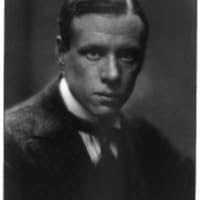
“Wait till Buzz takes charge of us. A real Fascist dictatorship!"
"Nonsense! Nonsense!" snorted Tasbrough. "That couldn't happen here in America, not possibly! We're a country of freemen."
"The answer to that," suggested Doremus Jessup, "if Mr. Falck will forgive me, is 'the hell it can't!' Why, there's no country in the world that can get more hysterical—yes, or more obsequious!—than America. Look how Huey Long became absolute monarch over Louisiana, and how the Right Honorable Mr. Senator Berzelius Windrip owns his State. Listen to Bishop Prang and Father Coughlin on the radio—divine oracles, to millions. Remember how casually most Americans have accepted Tammany grafting and Chicago gangs and the crookedness of so many of President Harding's appointees? Could Hitler's bunch, or Windrip's, be worse? Remember the Kuklux Klan? Remember our war hysteria, when we called sauerkraut 'Liberty cabbage' and somebody actually proposed calling German measles 'Liberty measles'? And wartime censorship of honest papers? Bad as Russia! Remember our kissing the—well, the feet of Billy Sunday, the million-dollar evangelist, and of Aimée McPherson, who swam from the Pacific Ocean clear into the Arizona desert and got away with it? Remember Voliva and Mother Eddy?... Remember our Red scares and our Catholic scares, when all well-informed people knew that the O.G.P.U. were hiding out in Oskaloosa, and the Republicans campaigning against Al Smith told the Carolina mountaineers that if Al won the Pope would illegitimatize their children? Remember Tom Heflin and Tom Dixon? Remember when the hick legislators in certain states, in obedience to William Jennings Bryan, who learned his biology from his pious old grandma, set up shop as scientific experts and made the whole world laugh itself sick by forbidding the teaching of evolution?... Remember the Kentucky night-riders? Remember how trainloads of people have gone to enjoy lynchings? Not happen here? Prohibition—shooting down people just because they might be transporting liquor—no, that couldn't happen in America! Why, where in all history has there ever been a people so ripe for a dictatorship as ours!”
― It Can't Happen Here
"Nonsense! Nonsense!" snorted Tasbrough. "That couldn't happen here in America, not possibly! We're a country of freemen."
"The answer to that," suggested Doremus Jessup, "if Mr. Falck will forgive me, is 'the hell it can't!' Why, there's no country in the world that can get more hysterical—yes, or more obsequious!—than America. Look how Huey Long became absolute monarch over Louisiana, and how the Right Honorable Mr. Senator Berzelius Windrip owns his State. Listen to Bishop Prang and Father Coughlin on the radio—divine oracles, to millions. Remember how casually most Americans have accepted Tammany grafting and Chicago gangs and the crookedness of so many of President Harding's appointees? Could Hitler's bunch, or Windrip's, be worse? Remember the Kuklux Klan? Remember our war hysteria, when we called sauerkraut 'Liberty cabbage' and somebody actually proposed calling German measles 'Liberty measles'? And wartime censorship of honest papers? Bad as Russia! Remember our kissing the—well, the feet of Billy Sunday, the million-dollar evangelist, and of Aimée McPherson, who swam from the Pacific Ocean clear into the Arizona desert and got away with it? Remember Voliva and Mother Eddy?... Remember our Red scares and our Catholic scares, when all well-informed people knew that the O.G.P.U. were hiding out in Oskaloosa, and the Republicans campaigning against Al Smith told the Carolina mountaineers that if Al won the Pope would illegitimatize their children? Remember Tom Heflin and Tom Dixon? Remember when the hick legislators in certain states, in obedience to William Jennings Bryan, who learned his biology from his pious old grandma, set up shop as scientific experts and made the whole world laugh itself sick by forbidding the teaching of evolution?... Remember the Kentucky night-riders? Remember how trainloads of people have gone to enjoy lynchings? Not happen here? Prohibition—shooting down people just because they might be transporting liquor—no, that couldn't happen in America! Why, where in all history has there ever been a people so ripe for a dictatorship as ours!”
― It Can't Happen Here

“One-man regimes belong to old eras; they involve clowning and arbitrariness! In the twenty-first century only the silly and larky nations give permission to such third-class contemptible regimes!”
―
―
“Under any dictatorial regime, being a dissident is often a one-day job.”
― Knife Paintings: Lozengist Movement
― Knife Paintings: Lozengist Movement

“The Germans, who wanted Hitler and Germany to be defeated immediately, were true patriots, not traitors! The faster a dictator is defeated, the fewer people die because no dictator cares about human life!”
―
―
“Do you understand what I have not said and what you have not heard in this room that does not exist?”
― Boy Genius: A Novel
― Boy Genius: A Novel
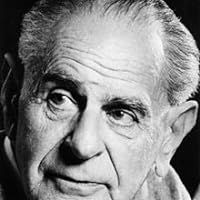
“We see here that Plato recognizes only one ultimate standard, the interest of the state. Everything that furthers it is good and virtuous and just; everything that threatens it is bad and wicked and unjust. Actions that serve it are moral; actions that endanger it, immoral. In other words, Plato’s moral code is strictly utilitarian; it is a code of collectivist or political utilitarianism. The criterion of morality is the interest of the state. Morality is nothing but political hygiene.
This is the collectivist, the tribal, the totalitarian theory of morality: ‘Good is what is in the interest of my group; or my tribe; or my state.’ It is easy to see what this morality implied for international relations: that the state itself can never be wrong in any of its actions, as long as it is strong; that the state has the right, not only to do violence to its citizens, should that lead to an increase of strength, but also to attack other states, provided it does so without weakening itself. (This inference, the explicit recognition of the amorality of the state, and consequently the defence of moral nihilism in international relations, was drawn by Hegel.)”
― The Open Society and Its Enemies - Volume One: The Spell of Plato
This is the collectivist, the tribal, the totalitarian theory of morality: ‘Good is what is in the interest of my group; or my tribe; or my state.’ It is easy to see what this morality implied for international relations: that the state itself can never be wrong in any of its actions, as long as it is strong; that the state has the right, not only to do violence to its citizens, should that lead to an increase of strength, but also to attack other states, provided it does so without weakening itself. (This inference, the explicit recognition of the amorality of the state, and consequently the defence of moral nihilism in international relations, was drawn by Hegel.)”
― The Open Society and Its Enemies - Volume One: The Spell of Plato

“There is no such thing as a non-dangerous dictator! Like all the venomous snakes, all dictators are dangerous! Then what is the antidote? Antidote is our love for freedom and our unshakable determination on the matter of keeping this love!”
―
―

“General Gerardo Machado always had an eye for the ladies and enjoyed partying at the swankiest nightclubs in Havana. For a time he even owned his own club, which was the place for his political hacks to be seen. Machado was frequently there in the company of some of the most enticing ladies in the country.
Through a combination of threats and bribery, he maintained control of the Army. In April of 1928 the Cuban Congress at the behest of Machado passed a law barring any presidential nominations by any party other than the Liberal, Conservative and Popular parties. Interestingly enough Machado declared himself the only legal candidate for those parties, and thus ran for a second term unopposed. Not only had he overspent money from the national treasury, but now he also alienated the Cuban public, who denounced him as an authoritarian nationalist and tyrant. Students, labor unions and intellectuals branded him an outright dictator. It was during this time that Marxist thinking was gaining strength throughout the world. The Communist philosophy was also becoming ever more popular among intellectuals, professors and students at the Universidad de La Havana. Realizing that he was now in danger of losing control, Machado made a power grab and declared Martial Law in Cuba. Intent on holding on to power, he became even more despotic than ever, creating a secret police known to the people as La Porra, meaning a big stick! As President, Machado became openly vindictive and did not hesitate to torture or even assassinate his foes in order to maintain tight sway over the Cuban population.
With the Great Depression of 1928, things only got worse. The economy, which was single-sided, was extremely dependent upon sugar. Poverty was widespread, and even necessities all but disappeared, leaving the Cuban people destitute and in misery.”
―
Through a combination of threats and bribery, he maintained control of the Army. In April of 1928 the Cuban Congress at the behest of Machado passed a law barring any presidential nominations by any party other than the Liberal, Conservative and Popular parties. Interestingly enough Machado declared himself the only legal candidate for those parties, and thus ran for a second term unopposed. Not only had he overspent money from the national treasury, but now he also alienated the Cuban public, who denounced him as an authoritarian nationalist and tyrant. Students, labor unions and intellectuals branded him an outright dictator. It was during this time that Marxist thinking was gaining strength throughout the world. The Communist philosophy was also becoming ever more popular among intellectuals, professors and students at the Universidad de La Havana. Realizing that he was now in danger of losing control, Machado made a power grab and declared Martial Law in Cuba. Intent on holding on to power, he became even more despotic than ever, creating a secret police known to the people as La Porra, meaning a big stick! As President, Machado became openly vindictive and did not hesitate to torture or even assassinate his foes in order to maintain tight sway over the Cuban population.
With the Great Depression of 1928, things only got worse. The economy, which was single-sided, was extremely dependent upon sugar. Poverty was widespread, and even necessities all but disappeared, leaving the Cuban people destitute and in misery.”
―

“Life in communism is clear, you have only one choice !
Life in Socialism you have limited choices, but still is not your choice
Life in communism is only one choice and the choice is crystal clear my way or highway, do as you been told and do no question the authorities even if they are wrong.
Life in delusional democracy you supposed to have many choices, but you must pick one is offerd to you.
Being free means making your own choices and not picking the choices are offered to you”
―
Life in Socialism you have limited choices, but still is not your choice
Life in communism is only one choice and the choice is crystal clear my way or highway, do as you been told and do no question the authorities even if they are wrong.
Life in delusional democracy you supposed to have many choices, but you must pick one is offerd to you.
Being free means making your own choices and not picking the choices are offered to you”
―

“To my mind, there is something warmer and more human about the carnality of other dictatorships, say in Latin America. One can more easily understand a desire for cases stuffed with money and drugs, for women and weapons and blood. These obedient grey men doing it with their underpaid informers on a weekly basis seem at once more stupid and more sinister. Betrayal clearly has its own reward: the small deep human satisfaction of having one up on someone else. It is the psychology of the mistress, and this regime used it as fuel.”
― Stasiland: Stories from Behind the Berlin Wall
― Stasiland: Stories from Behind the Berlin Wall

“The rulers of the oppressive governments do not know the wonderful flowers that bloom in the deserts despite the most difficult conditions! Goodness, beauty, hope flourish even in the land of Satan!”
―
―

“As the red dragon flies over the pacific, cradles of yuan shall soften the fall of many when they seek shelter under the umbrella of friendship.”
―
―
“Most of the dictators do allow freedom in the private space. it is their tentacles in the public space that are considered the killers of democracy. if you want to test democracy, go no further than measuring the restraint that people feel in the public space about activities that cause no harm to fellow citizens, the dictator excluded.”
―
―

“To properly compare democracies to dictatorships we need to consider the real reason democracies were created, that is, to divide the people. Politics only exists in the minds of the people. In reality, all political parties, apart from a few insignificant independents are controlled by the same rich and powerful entities. Therefore, there is essentially no difference between a democracy or a dictatorship. But, I can tell you one thing the Chinese do not waste their time doing, is arguing with their neighbours about which political party they support.”
―
―

“The tragic end of Julius Caesar, who destroyed the Republic, has never had a deterrent effect on the aspiring dictators who came after him in history! Because dictatorship is a mental illness. Even if you tell a rabid dog not to bite, it will still bite because it is sick, rabies is a disease, dictatorship is a disease! Once you give authority to the dictator, you can't take it back. If you don’t want to destroy him like Brutus, never give him authority, this way you will save his life and the lives of others! The most humane cure for dictatorship is not to give it authority!”
―
―
All Quotes
|
My Quotes
|
Add A Quote
Browse By Tag
- Love Quotes 97.5k
- Life Quotes 76k
- Inspirational Quotes 73k
- Humor Quotes 44k
- Philosophy Quotes 29.5k
- Inspirational Quotes Quotes 27k
- God Quotes 26k
- Truth Quotes 23.5k
- Wisdom Quotes 23.5k
- Romance Quotes 23k
- Poetry Quotes 22k
- Death Quotes 20k
- Happiness Quotes 18.5k
- Life Lessons Quotes 18.5k
- Hope Quotes 18k
- Faith Quotes 18k
- Quotes Quotes 16.5k
- Inspiration Quotes 16.5k
- Spirituality Quotes 15k
- Religion Quotes 15k
- Motivational Quotes 15k
- Writing Quotes 15k
- Relationships Quotes 14.5k
- Life Quotes Quotes 14k
- Love Quotes Quotes 14k
- Success Quotes 13.5k
- Time Quotes 12.5k
- Motivation Quotes 12k
- Science Quotes 11.5k
- Motivational Quotes Quotes 11.5k

